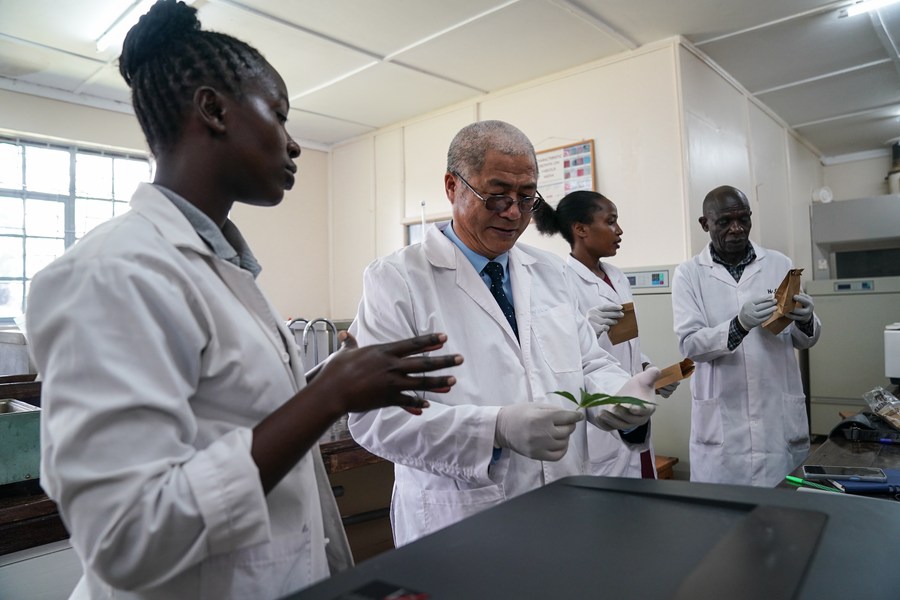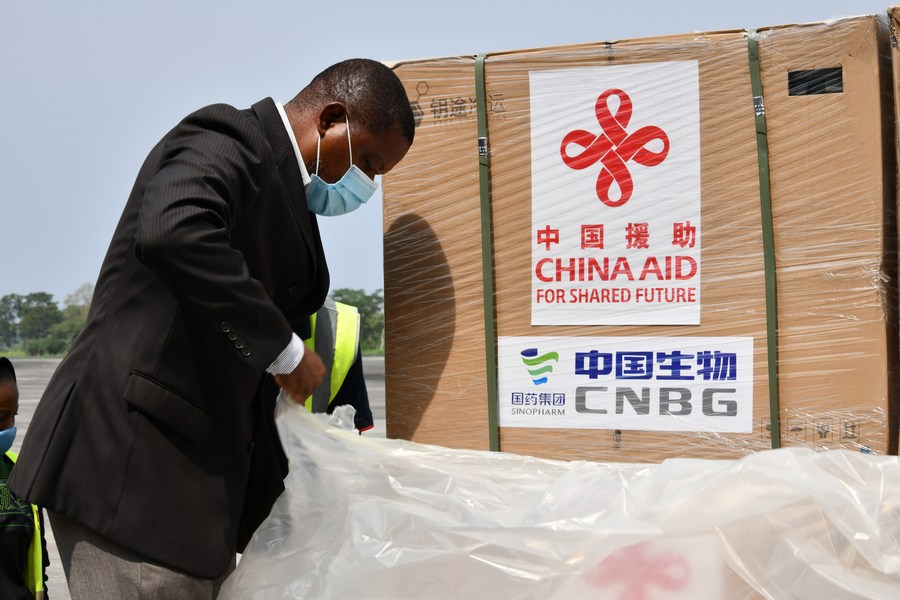For a New Era

China’s modernisation effort is not only a call to duty to humanity, but an obligation to shoulder more responsibility with the world.
The 658-page Xi Jinping: The Governance of China Volume IV, comprising written and spoken works of Chinese President Xi Jinping, who is also general secretary of the Communist Party of China (CPC) Central Committee, is a timely interrogation into the issues in the governance of China, and carries profound insights into the existential subjects of contemporary global governance. It follows in the train of thoughts espoused with acute sobriety in the previous three volumes of the book. It espouses and interrogates wide ranging and critical issues of the times, bringing contexts, both historical and contemporary, on the subjects of its purview.
President Xi discusses the historical choice of the Chinese people to explore the path of socialism with Chinese characteristics. On page 35, he points out that “To stay at the forefront of the times, a nation must always be guided by the right theories and thoughts.” Giving insights into why Chinese socialism works, he says it is “because Marxism works.” But to leave no one in doubt about the theoretical vitality of Marxism, he notes that “Marxism is adapted by the CPC to the Chinese context, kept up to date, and employed to guide our cause.”
Grounded in theory
Stressing the scientific value of Marxism, President Xi notes that it “points the way for advancing human society” and “is a powerful theoretical weapon for us to understand the world and its underlying trends, seek the truth and change the world.” To further underline the intrinsic theoretical value of Marxism to offer ideas for the way forward for humankind, he observes that “Marxism is not a set of rigid dogmas, but a guide to action that must evolve as the situation changes.”
I have dwelt on the insight of President Xi on the scientific theory of Marxism because it is fundamental to understand the governance of modern China and its contributions to contemporary global governance. The success of the CPC in the steady advancement of Chinese modernisation flows from the rigour and vigour of theoretical innovation which enables practical problem solving.
The theory of Marxism and its application has given rise to a governance process in China characterised by inclusion through a multi-party consultative democracy that generates consensus, economic modernisation through reform and opening up, and national rejuvenation.

But governance of China is not just about China and the Chinese; its modernisation effort is not only a call to duty to humanity, but an obligation to shoulder more responsibility with the world.
President Xi, in the fourth volume of his work, addresses vital notions of China’s perspectives on the contemporary trend of multilateralism and its practical contributions to shaping inclusive international governance process that is broadly participatory. The vision of a community of shared future for humanity has been supported by the framework of the Belt and Road Initiative (BRI) for international cooperation.
International cooperation
The BRI has become the most extensive platform of international cooperation, offering history’s largest international public good on offer. It lends practical meaning to both multilateralism and globalisation. Africa, the region with largest number of countries involved in the BRI, is witnessing a historic vigour in infrastructure connectivity both within countries and across the border. In his address to the Eighth Ministerial Conference of the Forum on China-Africa Cooperation, President Xi states, “China will undertake 10 connectivity projects for Africa, form an expert group on economic cooperation with the secretariat of the African Continental Free Trade Area (AfCFTA) and give continued support to the development of AfCFTA (page 520).” And this would only add strength to building of the China-Africa community of shared future.
In the book, President Xi emphasises the common future of humanity, which was made more evident by the vicious COVID-19 pandemic that ravaged the world without heed to the status and power of any country. President Xi, in the early stages of the pandemic, called for global solidarity in order to strengthen coordination to promote recovery in the struggle against the pandemic. China acted as a responsible major country, providing materials, platforms and initiatives for anti-pandemic control and containment.

From the rostrum of the World Economic Forum Vital Event of the Davos Agenda, President Xi offered a riveting insight into the historical trend of multilateralism and its redeeming and invigorating prospects for stable international relations. He said the differences in our histories, cultures and systems are as old as human societies themselves; they are the intrinsic characteristics of human civilisation. “Diversity is an objective reality and this will not change. Difference in itself is no cause for concern. What does sound the alarm is arrogance, prejudice and hatred. It is the attempt to impose a hierarchy on human civilisation or force one’s own historical experience, culture and social system upon others,” he says. “All countries should pursue peaceful coexistence on the basis of mutual respect, see common ground while shelving differences, and promote exchanges and mutual learning (page 535).”
From the understanding of the contemporary trends to giving effect to practical mechanism to manage, harness and advance the human progress in the context of the reality, vital initiatives to promote consultation and cooperation have been sustainably advanced. The global development, security and civilisation initiatives are constructive frameworks to meet the challenge of times and steer the humanity in the direction of shared prosperity, collective security and enduring universal peace.
The fourth volume of Xi Jinping: The Governance of China is an immense resource deserving in-depth study. It illustrates with enough historical anecdotes and incisive wisdom fundamental issues not only in the contemporary governance of China, but also the essential outlook on key world issues with implications for all nations and peoples of the world. It is a compelling reading for anyone who wants to keep in touch with the times.
The author is Director of Centre for China Studies, Abuja, Nigeria.
 Facebook
Facebook
 Twitter
Twitter
 Linkedin
Linkedin
 Google +
Google +










